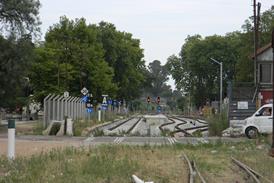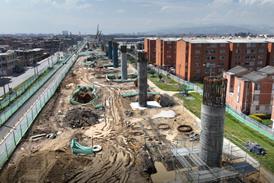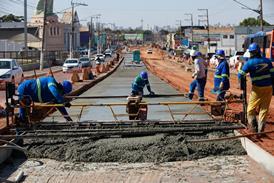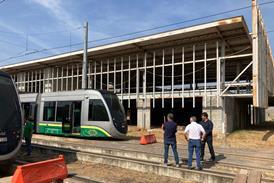YET ANOTHER official report has recommended major reform of Indian Railways. This time it originated with the Parliamentary Standing Committee on Railways, which last month published a document in response to IR’s requests for grants in 2000-01. The report went much further than commenting on the grants, making strong criticism of the status quo and even suggesting that the Indian Railways Board should be abolished. The committee felt that the Board could be replaced by ’a more state-of-the-art structure’. One option would be to ’corporatise’ the railway by setting up a joint stock company as a holding organisation, with the zonal railways trading as separate operating subsidiaries. The committee has promised to come up with detailed recommendations at a later date.
The broad policy recommendations are in line with the views expressed by the Rakesh Monan committee (RG 3.01 p141), in that ’nothing short of major restructuring will be required to achieve the objective of commercialising IR and making its management autonomous’. The Rakesh Monan committee favours establishing an Indian Railway Corp to manage railway assets under rules set by an Indian Rail Regulatory Authority; we understand that IRRA would be responsible for regulating fares, which when used as an instrument of social policy are inevitably going to be the subject of controversy. At the head of IRC would be the Indian Railways Executive Board, charged specifically with implementing a restructuring programme.
The Standing Committee was harshly critical of IR’s financial policies, warning that borrowing money on the market through Indian Railway Finance Corp to pay for uneconomic services was ’a sure recipe for disaster’. The opportunity to generate funds from property and land ownership was not being handled well, while the programme to convert another 11000 route-km of narrow gauge lines to broad gauge, in addition to 8000 route-km already converted, would require 13 to 14 years to complete at present spending levels. The programme should be reassessed and priority allocated to schemes that would generate traffic, and hence extra revenue.
Further, the committee suggested that there should be a moratorium on new projects, with the emphasis switched to improving the current network, notably through raising capacity on high-density routes and on reducing surplus facilities elsewhere.
To be fair, outgoing Railway Minister Mamata Banerjee did not recommend new construction in her controversial budget in February (RG 4.01 p218). But her tenure was not marked by any serious attempt to come to terms with the need for reform, leaving a tough legacy to her replacement, Nitish Kumar.




















